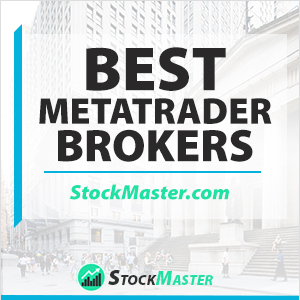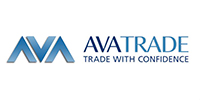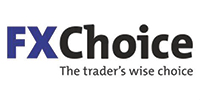 Finding the best Metatrader 4 broker for investing and trading forex can be difficult. Metatrader 4 is definitely one of the most popular trading platforms on the planet. As for Forex trading, it most certainly is. There are various statistics floating around that you can look into, but the average statistic states that something along the lines of 90% of all retail trading in the currency markets is done with the Metatrader platform.
Finding the best Metatrader 4 broker for investing and trading forex can be difficult. Metatrader 4 is definitely one of the most popular trading platforms on the planet. As for Forex trading, it most certainly is. There are various statistics floating around that you can look into, but the average statistic states that something along the lines of 90% of all retail trading in the currency markets is done with the Metatrader platform.
One thing to keep in mind is that the Metatrader 5 platform is starting to replace Metatrader 4, as it is currently being phased out. The newer version of the platform is very familiar for those using the older version, and quite frankly most of it is relatively interchangeable.
| Top Brokers | Minimum Deposit | Max Leverage | Regulations | |
|---|---|---|---|---|
 |
$100 | 1:400 | MiFID | VISIT BROKER |
 |
$50 | 1:200 | IFSC | VISIT BROKER |

|
$100 | 1:30 | ASIC, CySEC, FCA, FSB, ISA, MAS | VISIT BROKER |
Thus, it is quite often used by brokerages because of its ease of use, it’s excellent charting potential, and the fact that traders around the world have been developing thousands upon thousands of indicators and automatic trading robots that people take advantage of called “expert advisors.” These expert advisors can often automate trading strategies in MQL.
Let’s check out some of the top-rated MetaTrader 4 forex brokers and compare their features, so you can see which one is right for you.
Compare the Top Forex Brokers for MT4 in 2022
Here’s a list of the best MetaTrader 4 (MT4) brokers that will help you get started trading forex and making money in 2020.
FXPro
FXPro started in 2006 in London. The broker offers Forex, CFD markets in shares, indices, futures, metals, and energies. They use an “NDD”, or “No Dealing Desk” approach to facilitating orders, meaning that they are automatically routed and matched up with each other. They offer floating spreads and are regulated in several different countries. They have over €100 million in company capital, making it one of the most well-capitalized brokers out there, and most certainly means that they can copper any financial storms that come along.
They are also very well known for sponsoring high-level athletes and racing teams, and therefore with its high visibility, FXPro goes out of its way to maintain a positive image and facilitate trading for their clients in a fair and productive manner. They not only offer the Metatrader ecosystem, but they also offer cTrader and their own proprietary platform called FXProEdge.
Accounts Stats
Leverage: The leverage offered at FXPro has a maximum of 1:500 for currency trading. Spreads are variable, and leverage are different depending what assets you’re trading along with your current country. As a highly regulated broker, they follow the rules of your local regulator.
Minimum deposits allowed: FXPro accounts required a small $200 minimum deposit, making it an affordable brokerage choice. This is a relatively low barrier to entry as they offer so many global assets.
Regulations:
- FCA (UK)
- MENA (Dubai)
- FSCA (South Africa)
- CySEC (Cyprus)
- SIA (Bahamas)
Payment Options: FXPro allows several different payment options including: PayPal, credit cards, Neteller, UnionPay, and Skrill.
US customers: Unfortunately, FXPro is not regulated in the US, so they don’t accept US traders.
Pros
- Multiple assets to trade and follow
- The broker platform and ecosystem give you awesome asset allocation
- Offers not only Metatrader, but cTrader as well
Cons
- US traders not allowed
Bottom Line
FXPro is by far one of the biggest brokers out there, and with good reason. They have been servicing clients for several years and have a strong presence globally. They offer plenty of assets to trade from, and also offer a multitude of platforms, not just Metatrader. Being highly regulated and strongly capitalized makes a huge difference as well, and therefore makes this a very attractive brokerage firm.
OctaFX
OctaFX has been around since 2011 and hails from St. Vincent and the Grenadines. They offer several different assets including: indices, Forex, metals, and crypto with CFD markets. They are of course not only regulated locally, but they are also regulated in the European Union, so it does make this a much more attractive brokerage than the typical Caribbean bucket shop. They of course do use the Metatrader platform, and therefore fits nicely with all of the other brokerage firms in this list. They also offer cTrader, which is the world’s viable alternative to Metatrader.
They offer multiple trading accounts and sizes, which of course all have their own basic nuances. They do tend to have several bonus promotions going on it in a given time, so keep in mind that you are better off checking that before signing up as the bonuses can make it even more attractive.
Accounts Stats
Leverage: Leverage at OctaFX can be as high as 1:500 for currency trading. Leverage in other markets is of course lower, which is typical for this industry. It’s typical leverage for a lot of “offshore” brokers, so your mileage may vary but at the end of the day there is more than enough leverage to take advantage of.
Minimum deposits allowed: OctaFX’s minimum deposit is only $5, allowing you to test out the idea of trading “real money” without putting any serious capital to risk. Obviously, you will need more money than that to take on any position of size, but it is a good place to start.
Regulations:
- CySEC (Cyprus)
Payment options: OctaFX allows bank wire, Credit Cards, Skrill, Neteller, and other regional vendors.
US Customers: OctaFX is not regulated in the US, so they can’t take American clients.
Pros
- They offer the cTrader as well as Metatrader ecosystems
- Great education and research resources
Cons
- Cannot accept US clients
- Although varied markets, there could be more choices
Bottom Line
OctaFX is a great trading platform with plenty of features and trading options for beginners and advanced traders alike.
Pepperstone
Pepperstone is from Melbourne, Australia and was founded in 2010. The firm allows traders to use the Metatrader 4 and 5 platforms, as well as cTrader. They offer a ton of different trading assets including: commodities, stocks, indices, Forex, crypto, and futures with CFD markets. They won a bunch of awards and are consistently considered one of the best brokers in Australia, if not Asia.
They have a huge list of satisfied clients, and quite frankly are one of the better places you can trade. They have regulation in multiple jurisdictions, so therefore the trader can feel very comfortable depositing their money with Pepperstone.
Accounts Stats
Leverage: Pepperstone offers high leverage, with a max leverage of 1:500 for currencies. Leverage amounts change depending on the instrument, just like the do with any broker. All things being equal though, they do offer more leverage than most of the major brokerages.
Minimum deposits allowed: Pepperstone’s minimum deposit is $500 to open a new account. While this will not allow people to get “their feet wet” by risking just a few dollars, the reality is that there are so many markets that they offer it’s almost impossible to justify opening up an account with anything less than that.
Regulations:
- ASIC (Australia)
- FCA (UK)
Payment Options: Pepperstone include bank transfers, PayPal, Skrill, Neteller, credit cards, POLi, BPay, and UnionPay. They have multiple local jurisdiction options as well.
US customers: No, as they offer CFDs. Pepperstone has future plans t0 enter US markets.
Pros
- Metatrader ecosystem
- Well-established broker
- Strong financials for the company
Cons
- Doesn’t allow US traders
- $500 minimum to open live account
Bottom Line
Pepperstone is one of the most trustworthy brokers that you can use. They are the biggest Australian forex broker right now and have been trusted by thousands of Australians and Asian traders alike. They are heavily regulated and have passed all of the stringent needs to be accepted by the FCA in the UK, as well as ASIC in their native Australia. This is an excellent place to do your business.
IG Group
IG Group is world-class broker based London. The parent corporation, IG Group Holdings PLC, was formed in 1974 when they originally opened up “IG Index.” This was a way for traders to speculate on the price of gold, as well as other precious metals. Since IG started their online business in 2003, they have grown to more than 178,000 clients in multiple countries. They are regulated by FCA in the UK and ASIC in Australia with global offices in 16 different countries.
They are the UK’s largest retail Forex brokerage and are publicly listed on the LSE. They offer both CFD trading and spread betting. They also offer options and currency trading. They use the Metatrader platform, like most of the brokerages around the world. However, they also give you the opportunity to use ProRealTime if you choose, which allows for automated algorithmic trading. Furthermore, they also have their own proprietary platform called IG Trading, which is a web-based platform. They have recently opened up the US firm but can only offer Forex and CFD trading in the US is illegal. They currently offer over 16,000 markets.
Accounts Stats
Leverage: IG offers different levels of leverage depending on the asset being traded. They do offer extraordinarily high leverage options on some assets. That being said, the usual standards applied. In other words, 1:30 for currencies is the accepted leverage in the United Kingdom. In the United States, it is 1:54 Major pairs, and 1:20 for minor pairs.
Minimum deposits allowed: The minimum deposit to open a new IG Group account is $250, or the equivalent in the local funding currency.
Regulations:
- CFTC (US)
- FCA (UK)
Payment Options: IG accepts credit card, bank transfer, and PayPal for payment options
US customers: Yes, IG USA allows US traders to trade Forex
Pros
- Allows many different asset: crypto CFDs, stocks, Forex, and commodities
- Global access to markets
- Regulated by several of the world’s strictest regulators
- Metatrader platform as well as ProRealTime
Cons
- US traders can only trade currencies. (US laws)
- Leverage is a bit lower, but out of their hands
Bottom Line
Longevity alone is going to be pretty impressive for IG Group. By far the oldest broker that we are looking at, they have a long track record. The structure the company has been around for you almost 50 years, with a huge number of offering for traders to take advantage of. They have built a reputation through multiple recessions in the financial crash. They have always stayed liquid and are one of the most well-respected brokerage firms in the world. You could certainly do much worse than to do your trading at IG Group.
To enter the United States retail Forex markets calls for huge amounts of capital backing the company. The fact that they could do that in the last couple of years speaks volume to the solidity of this corporate entity. That being said, the United States does have a few oddball laws out there, and IG Group does not offer Forex trading accounts to residents of Arizona or Ohio. This has to do with the state laws and can cause issues at other brokers as well.
FP Markets
FP Markets falls under the umbrella of First Prudential Markets Pty Limited, based in Australia. The company was founded in 2005 and has grown to become one of the larger Australian offerings. With the head office in Sydney, the brain has one multiple awards in the industry like customer service, trader education and trade execution.
Beyond that, they offer over 10,000 trading instruments. They obviously use the Metatrader ecosystem and are regulated in many different countries. They have very low spreads on Forex currency pairs, and therefore have been favored by many Australians over the last almost 2 decades.
Accounts Stats
Leverage: Leverage at FP markets goes as high as 1:500 for Forex pairs but will of course be a bit lower for other CFD markets. This is typical of Australian brokerages.
Minimum deposits allowed: FP Markets allows you to open an account with only $100. Again, you need more than that to trade with any size, but it does get you in the door so to speak.
Regulations:
- CySec (Cyprus)
- ASIC (Australia)
Payment options: FP Markets accepts Credit Cards, Neteller, Skrill, PayPal, and wire transfers.
US customers: No, as they offer CFDs.
Pros
- Allows crypto CFDs, stocks, commodities, and Forex
- Global markets
- Metatrader platforms
Cons
- No Americans allowed
Bottom Line
FP Markets as a strong backing parent company that will keep it afloat through the worst of times. In that sense, it is extraordinarily safe to trade there, perhaps more so than most other brokerage firms. They do offer a nice diversified global marketplace that you can take advantage of correlating and non-correlating assets as there is over 10,000 markets available. This alone makes this an interesting place to trade, and the fact that it is only $100 to get involved makes it a low barrier to entry.
Furthermore, as they are regulated in Australia they do have to adhere to very strict rules. They are also regulated in the EU, so that of course carries its own weight as well. Australians have trusted this brokerage firm for almost 2 decades, and they have earned the business of thousands through there diligent and trustworthy business practices.
LCG
LCG, or London Capital Group Limited is a brokerage firm out of London, England that offers Forex, metals, oil, and various soft commodities. It was founded in 1996 and has won many awards over the last several years including best mobile trading platform, CFD provider of the year, and the like. Beyond that, it is considered to be the second-biggest spread betting and CFD provider in the United Kingdom. Not only do they offer CFD trading, but they also offer option trading as well.
Accounts Stats
Leverage: Leverage at LCG goes as high as 1:500 for Forex pairs but will of course be a bit lower for other CFD markets.
Minimum deposits allowed: There is no minimum deposit, but obviously you need to have the appropriate amount of margin to open up a position.
Regulations:
- FCA (UK)
- CySEC (Cyprus)
Payment options: LCG accepts Credit Cards, UnionPay, Southeast Asia Realtime Banking, Skrill, and Neteller.
US customers: No, they are not regulated in the US.
Pros
- Metatrader ecosystem
- Multiple markets to choose from
- Longevity of company
Cons
- Doesn’t accept Americans
- Limited deposit options
Bottom Line
LCG is a well-known and respected brokerage firm out of London, England. This means that it has “earned its stripes” in one of the toughest cities to do business. Furthermore, they are heavily regulated by the FCA, which is always a huge advantage. They offer more leverage than is usually seen by brokers out of the United Kingdom, so that is a big advantage.
That said, this is a brokerage firm that has been around long enough that safety is certainly going to be something that you can expect, as well as plenty of experience handling orders for clients. Customer service has been one of its biggest advantages as well.
FXCM
FXCM is one of the oldest brokerage firms online. It has been around since 1999 and is currently based in London, England. They offer currencies, indices, crypto, and commodity CFD markets. You can trade with algorithms, and they do offer extensive education and research. The obviously offer the Metatrader ecosystem as well as Trading Station which is their own proprietary property.
Accounts Stats
Leverage: FXCM offers low leverage because of UK regulations. Their leverage for currencies is 1:30. Keep in mind, if you are trading outside of the UK, your leverage will likely increase.
Minimum deposits allowed: FXCM offers a really affordable $50 minimum deposit. This low minimum deposit gives you access to the markets really cheap. You obviously need to have larger amounts deposited in order to put positions of size on.
Regulations:
- FCA (UK)
Payment Options: Payment options at FXCM include credit cards, Skrill, bank transfer, Western Union, PayPal, and Neteller.
US customers: No, FXCM does not accept US clients
Pros
- Regulated in UK
- 20 years in the business
- Metatrader ecosystem
Cons
- Lost US license due
Bottom Line
While FXCM is heavily regulated, they had a red flag attached to them. As a result they aren’t allowed to operate in the US. Trouble still follows this brokerage because they have done so much extreme damage to the reputation. It’s not so much an argument as to whether or not they are a decent broker, they most clearly can be. However, there are large amounts of brokers out there trying to get your business.
There haven’t been many complaints since the broker left the US, so they seem to have cleaned up their act. If you are outside of the US, FXCM might be a good choice for you.
Common MetaTrader MT4 Broker Questions
Here are some of the most common questions that investors have about the MT4 MetaTrader platform.
What is MT4?
MT4, or Metatrader 4, is the most popular and widely used trading platform for currency and CFD markets. There is also Metatrader 5, which is the newer version of the platform. Quite frankly, the two platforms are very interchangeable, so if you understand wine, you will certainly be able to function with the other.
The differences are minor, and the later version only has a few tweaks here and there that the average trader will notice. There are stats out there that suggest that 90% of retail Forex trades are done via the Metatrader ecosystem.
How do I add a Broker to MT4?
Most of the time, this will be done automatically. You will simply download the platform from the brokers website, and it will already have most of the pertinent information filled in.
However, if you download the software from Metatrader itself, when you choose to login, there will be a list of brokerage firms that you can choose, both in demo and live accounts. For 99.9% of you though, this won’t be an issue.
Is Metatrader 4 a Broker?
No, Metatrader 4 isn’t a broker. However, if you download directly from the Metatrader website, there are certain brokerages that they have deals with. That being said, when people refer to Metatrader, they are referring to the platform itself.
How do I withdraw money from MT4?
You don’t. To get your money, you will typically have to request it from your broker’s website, or backend of their account platform – not to be confused with a trading platform. This will vary from broker to broker, and most will also have phone numbers you can call as well to get clarification.
